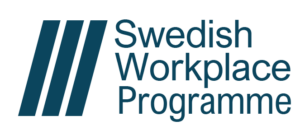The Board of the International Council of Swedish Industry (NIR) has appointed a new Chairman. In the spring of 2019 Mr. Erik Belfrage, Chairman of the Board for fifteen years, announced his plan to hand over the chairmanship in 2020 after introducing Mrs. Christine Bäckström as new CEO. The process of finding a successor has been on-going. Due to the sudden and tragic passing of Mr. Erik Belfrage in April, the Board of Directors gathered for an advanced Annual meeting and a new Chairman was appointed.
“We are pleased that Mrs. Annika Berglund has accepted the role as Chairman of the Board. Erik was very engaged in the process and I believe he would have welcomed the Board decision to elect Annika, who served as Board member under Erik’s chairmanship between 2013-2017”, says CEO Christine Bäckström.
Prior to her new role Annika Berglund, has been Senior Vice President Corporate Communication at Atlas Copco and during her twenty years in the company she held various positions in marketing and sales. Between 2015 and 2019 she was a Board Member of the Peter Wallenberg Water for All Foundation.
Leaving the company 2018 she started an independent strategic consultancy firm and a second company that promotes to inspire women to take charge of their careers and go for leading positions.
“I am very excited about becoming the Chair of NIR and look forward to contributing to NIR’s development and to sharing the knowledge of its important work and achievements ”, says Annika Berglund.
Three questions to Annika:
You live as you learn … (regarding promoting women to take care of their career to leading positions) What are your expectations on the role as Chairman of the Board?
I am really grateful for the opportunity to be the Chairman of the Board and look forward to reconnecting with NIR and its Board in this new role.
My predecessor Erik Belfrage has done a tremendous job, the organization has a very good reputation, it has committed and professional employees delivering results, and I look forward to contributing to the development of NIR from now onwards.
Related to the issue of taking care of your career: I believe that you can do what you want, no matter if you are a woman or a man. Let people know what you want and go for it!
You have worked in Swedish business for a long time. As Chairman of NIR you will work in the nexus between private and public sector. What should these two learn from each other?
The competitiveness of Swedish companies is close to my heart and I truly believe that they should be present in all corners of the world. It is only through presence that you can serve as a role model, influence, and contribute.
Having said this, it is always difficult to navigate in an environment that is complex and sometimes impossible even when it is obvious that business opportunities exist.
Through its work – and network – NIR can help companies to overcome the challenges by increasing the understanding of the requirements.
The Board members of NIR represent some of Sweden’s most global and successful companies. Through NIR they have a top-notch partner in increasing knowledge, insight and expanding their networks.
What do you think NIR can bring to the global challenges ahead?
I believe that if NIR did not exist NIR would have to be invented considering the need for the private sector to engage in some of the most pressing global issues. Companies cannot do it all by themselves on their own.
As a member of NIR, companies can contribute to development cooperation, education, capacity building, business practices and sustainability in the most challenging contexts. To the benefit of both Sweden, the member companies/organizations and to the local societies that NIR is working with.




